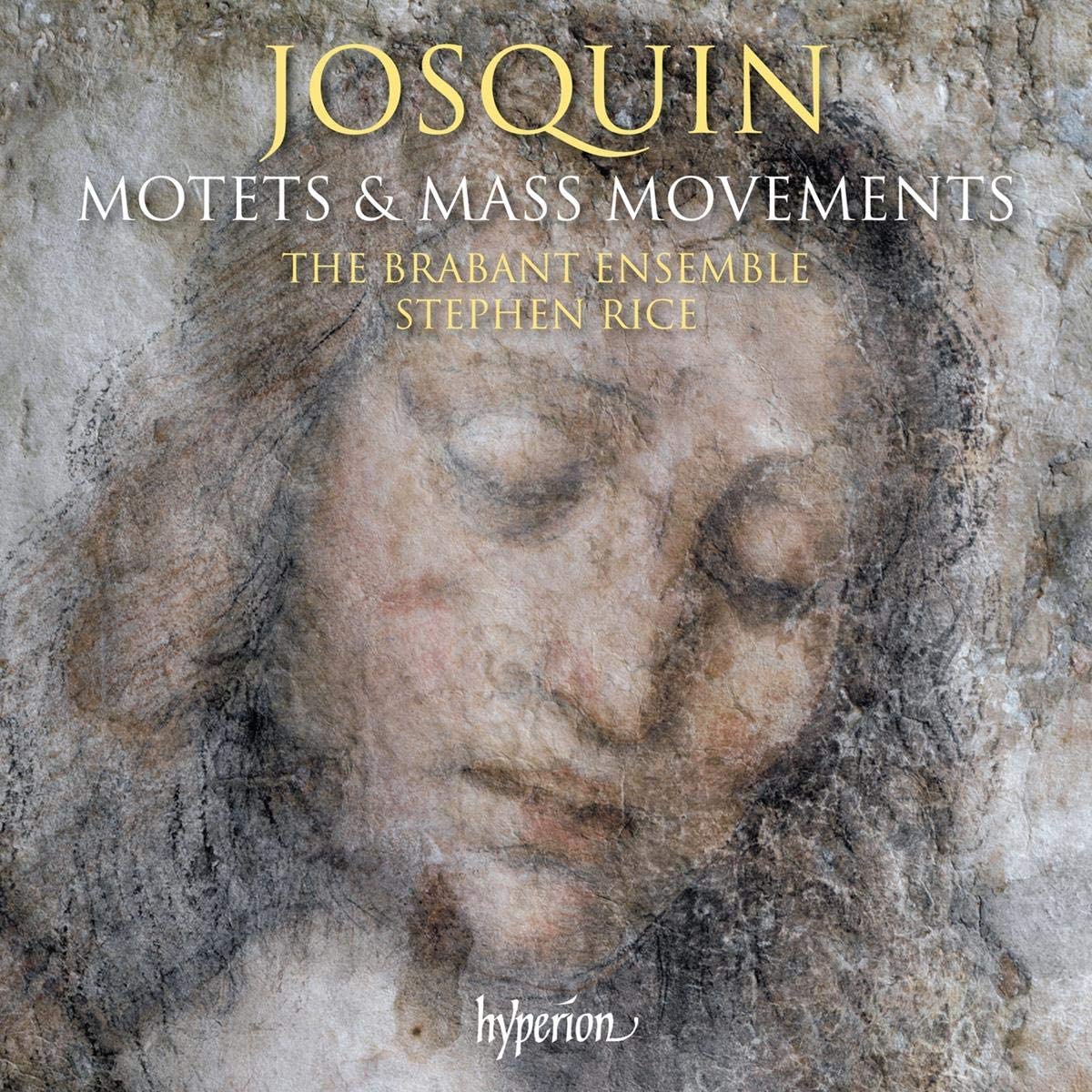The Brabant Ensemble, Stephen Rice
78:38
hyperion CDA68321
Click HERE to buy this on amazon.co.uk
The Brabant Ensemble specialises in bringing us music by neglected composers from the incredibly talented Franco-Flemish school which flourished between Josquin and Palestrina. We have it to thank for discs of revelatory music by the likes of Dominique Phinot, Thomas Crecquillon, Pierre de Manchicourt, Jean Maillard, Jacquet of Mantua and Jacob Clement. Its version of the latter’s sublime setting of Tristitia et anxietas alone justifies the choir’s existence, besides the numerous treasures on every other disc. They have also released a CD of neglected music by Palestrina, yet I found this strangely underwhelming, both as music and performance. Here they offer us music by the earlier bookend of this vibrant phenomenon.
The music on offer here consists of eight motets and two free-standing “mass movements”. The latter are easier to discuss and can be mentioned first: the Gloria de beata virgine and Sanctus de Passione. The Gloria is the more substantial of the two, a seemingly early, mediaeval-sounding work. The Sanctus is almost disconcertingly brief: even including an Elevation motet “Honor et benedictus” between the Sanctus itself and the Benedictus (scholarly opinion is that either the Elevation motet or the Benedictus would have been performed liturgically but not both, but the Ensemble rightly includes both for completeness and for the edification of listeners) the entire movement takes only 3’46. One can only agree with the eminent musicologist who described it as “unpretentious”.
The reasons behind the selection of material for this disc are not clear. Presumably, the record is released to celebrate Josquin’s quincentenary, though this is only stated explicitly in some of the advertising material. While all the items have the imprimatur of inclusion in the New Josquin Edition, Stephen Rice’s enthralling notes observe that doubts linger over the authenticity of most of them. Also, three of the items – Huc me sydereo, Stabat mater and O bone et dulcissime Jesu – possess or are suspected of possessing one or two extra parts which may or may not originally have been composed by Josquin. There are certainly other mass sections securely attributed to Josquin, and even I know of one other motet which has an extra voice supplied by another composer, so I wonder whether there exists a substantial repertory of Josquin’s sacred pieces which have subsequently had one or two extra parts added by other hands. My concern is that the selection here seems to lack some focus. Perhaps that focus is the function of these three sumptuous works for six voices, but if so, what is the rationale behind partnering them with these other more spartan works? There is certainly no individual number – like for instance Media vita in a programme of motets by Sheppard – which functions as that focus or that is simply a showstopper. For all their inclusion in NJE it appears that the three motets that follow – Domine ne in furore, Usquequo Domine and Homo quidam fecit – have all had doubts expressed about their authenticity. This leaves the two remaining motets which start the disc – Mittit ad virginem and Alma redemptoris/Ave regina – and even the former, the very first in the programme, survives with a plausible alternative attribution, leaving only the latter with a clean bill of musicological health. Although individual items have many features to relish – dissonances in Stabat mater, gorgeous textures in Huc me sydereo plus rich harmonies, sensuous sequences and more dissonances to relish in O bone et dulcissime Jesu to pick a few at random – there remains the fact that, to the layman at least, some of these effects might have been generated by the inclusion of notes not originally put in place by Josquin himself. These works rub shoulders with the three works for smaller vocal resources, mentioned above, about which doubts have been cast against Josquin’s authorship. The programme is topped by the two works, only one of which is incontrovertibly authentic, in his favoured four parts and tailed by two undistinguished but authentic mass sections, also in four. Perhaps this is the point: to provide successive contrasting tasters of the basic Josquin, the luxuriously expanded but only partly authentic Josquin, the questionable Josquin, and back to the authentic basic Josquin. These stops along the line are individually rewarding but the journey itself lacks coherence – all a bit halting, or, if one is shuffling the sequence, a bit arbitrary.
Performances that seemed meandering and undifferentiated at a first hearing blossomed in most (not entirely all) cases during subsequent hearings to come over as sensitive to individual texts and sonorities, though passages in the works of four parts sound almost exaggeratedly sparse beside those in six – reflecting Josquin’s technique in composing for the smaller number of voices – and I defy any choir to make the Sanctus sound more than “unpretentious”. Meanwhile, there is uncertainty as to how much real Josquin we are hearing. Does it matter? This disc does not provide an answer, but it does provide much pleasure.
Richard Turbet

One reply on “Josquin: Motets & Mass movements”
Me deja con muchas dudas para decidirme a comprarlo.
Agradezco la sinceridad, y honradez, del comentario.